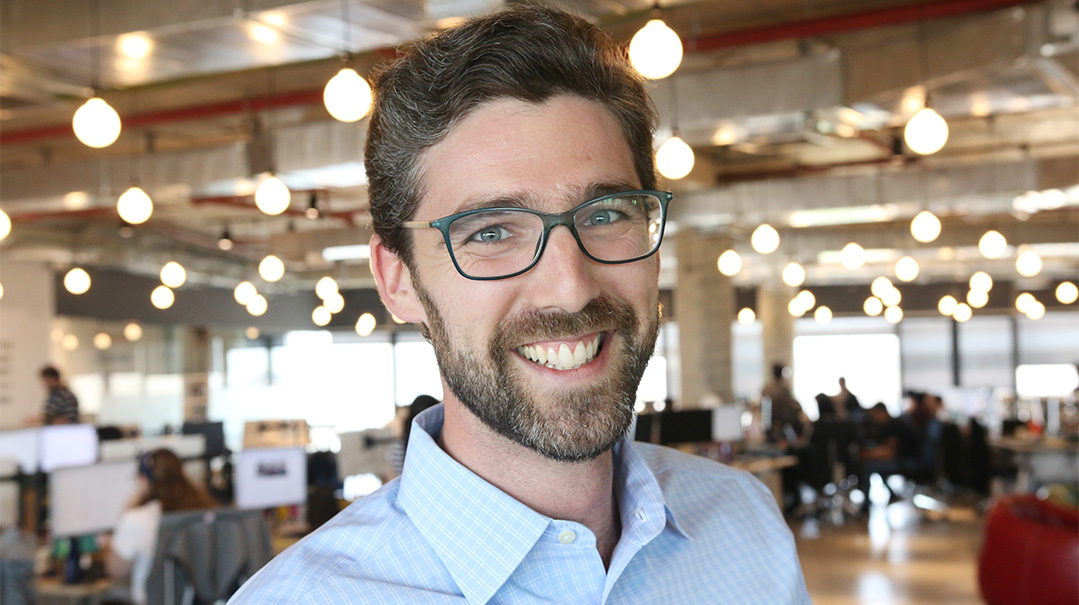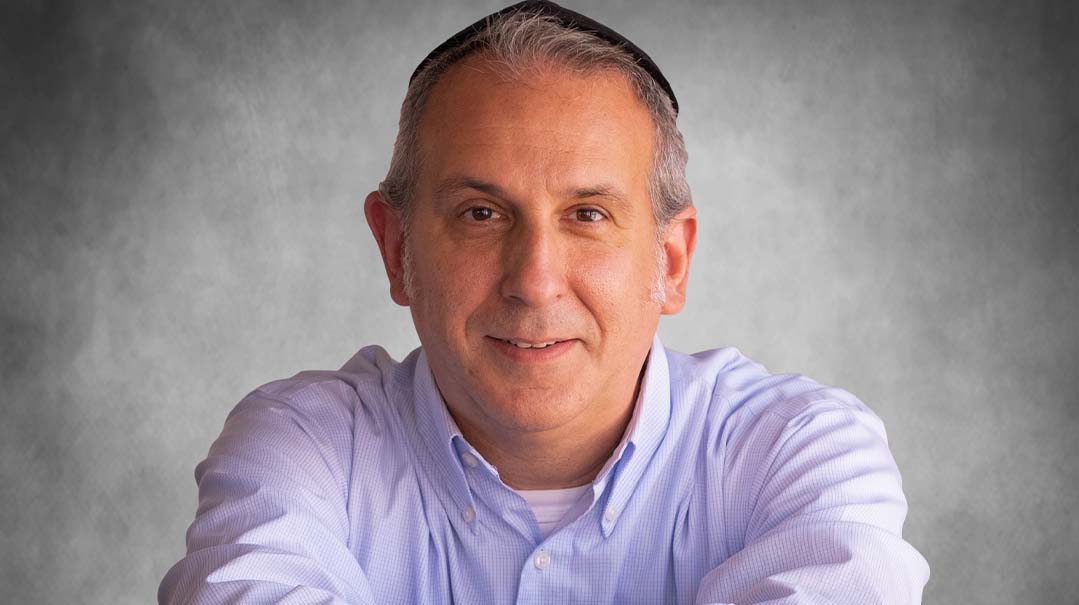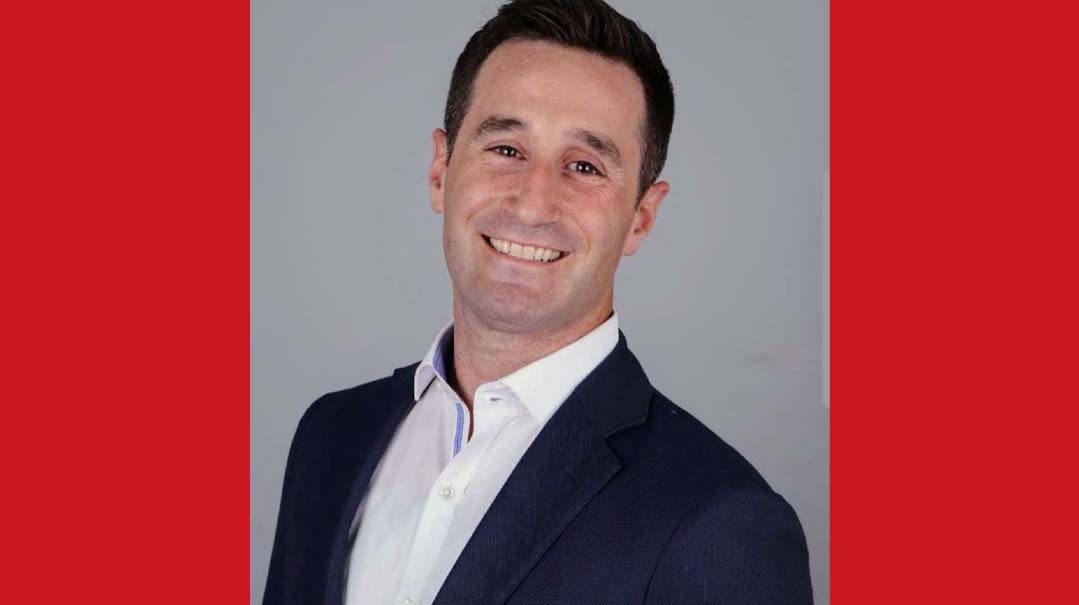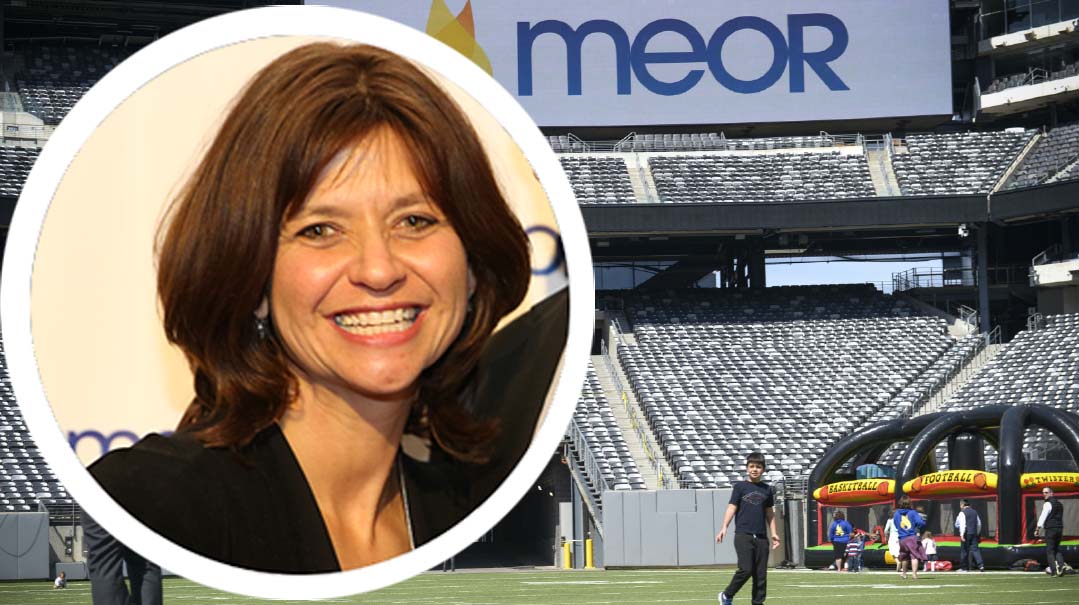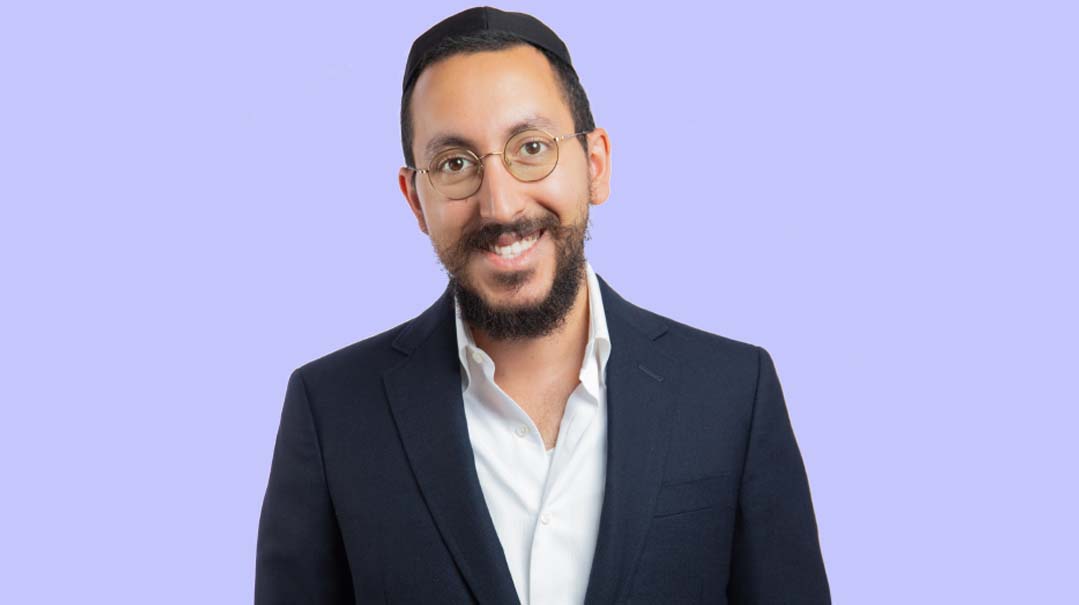Work/Life Solutions with Mark Halpern

"Be prepared to take risks and do things people say you can’t do; they’re usually wrong"
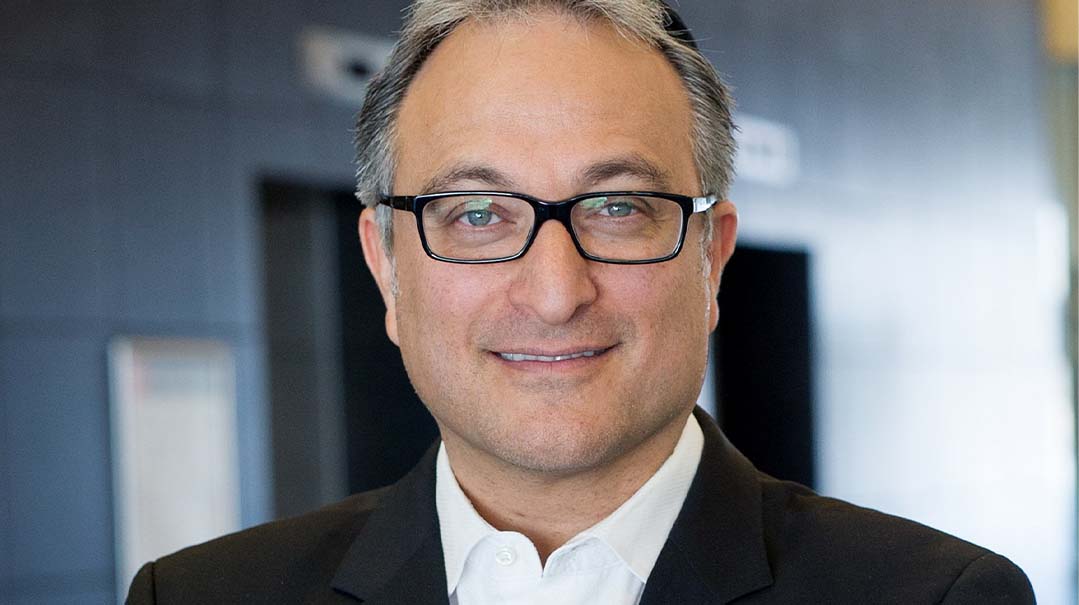
Who: Mark Halpern, Certified Financial Planner, Trust and Estate Practitioner, and Master Financial Advisor-Philanthropy, is CEO of WEALTHinsurance.com. He is widely recognized as one of Canada’s top life insurance advisors. Working with clients, charities, and foundations, and collaborating with allied professionals, he aims to generate a billion dollars in new planned giving legacy gifts. He’s also very active in many Jewish organizations.
What: Mark has a team across Canada that provides special expertise and insurance strategies for business owners, entrepreneurs, professionals and affluent families. He works closely with clients’ professional financial advisors to provide holistic estate planning, tax-mitigation strategies, and strategic philanthropic planning, often converting taxes into charity. He writes frequent articles for the TaxLetter, Investor’s Digest of Canada, and Foundations Magazine and is often quoted in national media and financial industry publications.
Mark has been a keynote speaker on the main platform at Top of the Table meetings, The Million Dollar Round Table, and many other industry conferences and corporate functions. He’s a member of many nonprofits, including Sick Kids Foundation, St. Joseph’s Health Center Foundation, and TV Ontario, and is a trustee and recent Chair at The Jewish Foundation of Greater Toronto.
Where: Mark and his wife Rhonda have five children, and they live in Thornhill, Ontario.
Why: Mark is an extraordinarily inspiring person. Period.
A little more elaboration? First, as Mark shares in the interview, he lost his father at a young age, and that experience shaped his entire career trajectory and life mission. I’m blown away when someone can grow through their challenges, ultimately using them as a springboard to positively impact others’ lives.
Second, Mark is a walking and talking kiddush Hashem, between his active involvement in numerous secular causes, the business ethics courses he teaches to students and young professionals, and his efforts to educate others how they can convert tax dollars to charitable donations.
Lastly, he manages to find time to incorporate Torah and chesed into his schedule, including learning a daily second seder, learning the daf, serving as Aish Toronto’s president for the past six years, and teaching a kiruv class every Shabbos at the Thornhill Woods shul.
1 of 9 What opportunities or personalities played a key role in your career path?
My father, of blessed memory, passed away young. He suffered a heart attack and died at the age of 50. It was 1974, and I was only 11 years old. His passing was a defining part of my life. Having no father to fall back on, I had to become fiercely independent, resourceful, and resilient.
Part of the reason I work in the field I do is a direct result of my father’s untimely passing. He was a busy engineer and sadly, he died without a will, very little savings, and no life insurance. My mother, who was 48 at the time, had to go back to work to support our family, and it was very challenging. I felt compelled to make sure other families wouldn’t have to go through what I experienced.
I’ve also been very fortunate to have been influenced by incredible mentors and inspirational role models like Rav Noach Weinberg, of blessed memory, the founder of Aish HaTorah. He was a one-in-a-million Jewish leader, and he got me to really think about my place in the world and what I should be doing to make it better. I firmly believe that everyone is brought into this world with unique abilities. The challenge is identifying what those special talents are, and seeing how to best put them to good use.
One of my incredible mentors is Dr. Paul Goldstein. He’s a Holocaust survivor who was at the top 1 percent of my industry, having qualified for the Top of the Table, for 40 consecutive years. He went back to school at the age of 80 to get his master’s degree. Paul then got his PhD at 86, and now, at 88, he just had a book published by Cambridge Scholars Press on the Balfour Declaration. I cold-called him over 20 years ago and asked to meet with him, hoping he would agree to mentor me. He said no, but I persisted, and pressed him to give me some time. Thank G-d, he agreed. He’s been an amazing friend and influence on me and others, especially in how to deal with adversity. We just finished taping a podcast that I believe is mandatory listening for people wanting to learn how to deal with adversity.
Our sages say that all the blessing in one’s life comes from your wife, and that is so true of my wonderful spouse of 26 years. My wife Rhonda has been the best partner and biggest influence in my life, and keeps the whole family going. She’s built our home and five children into the wonderful people they’ve become. She’s been by my side cheerleading me through many challenging times and has never let me slide. Whom you marry is the most important decision you will ever make, and the day I met her was the best day of my life.
2 of 9 Which three character traits have played a key role in your career path?
Number one is having a sense of humor. We need to laugh and we need simchah. Happiness is like the bumper on a car. Without it, an accident will destroy the entire vehicle; with it, the car may be dented, but it will stay intact. The secret is to focus on how good life is and appreciate all that you have versus focusing on all that you want and don’t have.
Number two is resilience. It’s really important to be able to bounce back. We’re all standing in a boxing ring every day of our lives. You’ll get hit, you’ll get hurt and you’ll get knocked down. But you can’t get knocked out. So stay on the canvas, it’s okay. But you only have ten seconds to get back up again. A true champion is someone who has the maturity to recognize that.
Number three is caring for others. It’s really important that you step up and help people. So many people are hurting. They need someone to talk to. They have things in their lives that you can help with that may only involve a simple phone call, some help finding a job, or a referral to a service provider. This has always been a big part of who I am and gives me a deep sense of pleasure and purpose.
3 of 9 What do you do to relax, recharge, or simply have fun? How do you make time for that, and how often?
I love spending time with my family. We love taking a cottage every summer — it’s a real highlight. Spending Shabbos and Yom Tov together are golden times for me. And my charity activities give me a great deal of joy; I serve on a lot of boards and pass it forward by mentoring many advisors. I’m also grateful to learn every day in a kollel from 4 p.m. to 6 p.m., which I’ve been doing for the past 13 years. My rabbi, who is also my chavrusa, is Rabbi Avraham Bitterman of Ateres Mordechai. He gives me ample doses of mussar, which we all need. I also find time to do daf yomi with the incredible Rabbi Eli Stefansky.
Back in 1991, I was working with a very dear friend who went on a men’s personal development retreat. He found it to be very worthwhile and really felt I should attend one as well. I was extremely reluctant, though, believing my life was in pretty good shape. But I trusted my friend, and eventually, in 1993 I went on the retreat. It was a defining moment for me. It helped me address some key things in my life, and I got a lot of clarity on what real commitment and trust look like.
I encouraged another five very close friends to attend the retreat too, and since 1997, we meet weekly in a safe place to define and declare the man we each want to be, make commitments, and submit ourselves for peer inspection. We even have consequences for not following through. We also have a lot of fun and celebrate life together.
As a group, we recognized there were many men out there who are “lone rangers,” and we wanted them to experience the feeling of community that we had. We created something called “Team Building for Jewish Men.” We currently have around 50 men in our network, and I’m very proud of the work we’ve done in creating these communities. They both challenge and inspire men to be their very best.
5 of 9 If you were granted an extra three hours per day or a spare million dollars, what would you do with that time or money?
I’d use the extra three hours to learn more Torah. And if I had a spare million, I’d use it to create a fund to help families get access to professional medical and psychological services that they can’t afford. I’d also want to spend more time with family and close friends. They are the oxygen in my life.
6 of 9 What is the most inspiring feedback you’ve ever received? Did that impact what you did next?
At the age of 32 I was hosting a dinner party, and a terrible accident happened where I fell from the third-story balcony of my apartment. I fractured my right ankle, dislocated my left foot, and suffered a compression fracture in my back. I was in the hospital for 31 days. Thank G-d, my ankle, with permanent pins inside, fully healed, and I’ve even been able to run half marathons.
Being in the hospital allowed me to think about my life, and a lot of good things emerged from what most people would think is a horrific experience.
Rabbi Yaakov Palatnik, then the rabbi of the Village Shul, came to see me, and I asked him, “Why did this happen?”
“I don’t know,” he replied, “but you can find out.”
He suggested I take some time off to go to Israel and do some learning. I thought that was crazy advice. But 15 months after the accident, I did take six months off from my business to go to Israel and study at a yeshivah. It was challenging being an older guy among all these younger people — but it really gave me a sense of perspective and brought me closer to Judaism.
Eventually Rabbi Palatnik’s wife Lori introduced me to my wife (Rhonda was her first student). We got married, and for the first two years after our wedding we lived in the Old City, where our first son Yosef was born. It was a magical time that I recommend for every newly married couple. Every year, on the anniversary of my accident, I make a kiddush in shul to publicly thank G-d for the miracle that happened to me, and every year on our wedding anniversary, we send flowers to Lori Palatnik and tell her again how grateful we are for her introduction.
7 of 9 If you were asked to deliver a TED Talk that would be watched by 50 million people, what topic would you choose to speak about? Why?
I did one! In 2019 I did a TED Talk at Moses Znaimer’s ideacity conference in Toronto for an audience of 700. I was in the disruptors category, and the title was “The New Philanthropy.” I encourage you to watch it. I love to spread my message of the importance of helping people and the power of philanthropy and creating family legacies through tax minimization strategies. Our corporate goal is to create $100 million of new charity annually working with clients, charities, and collaborating with allied professionals. Our larger goal is to build a national community in Canada and the US of 100 professionals who would each create $10 million of new planned legacy gifts per year that would equal $1 billion of new charity. This is especially imperative for Orthodox communities and organizations. Going full circle, I’m now helping Aish HaTorah Jerusalem launch a $250 million endowment called the Rav Noach Legacy Society, working with my dear friend and colleague Ken Fink of Tamar Fink in Minneapolis.
8 of 9 an you share a time when you had to navigate the tension between your deepest values and the business world?
Let me share some background about my accident falling off the third-story balcony. After first working in sports marketing, I started in the insurance industry on November 1, 1991. After a while, I started to do quite well. But while I was making money, I felt a disconnect between what I was doing on the outside and what I was feeling on the inside.
I’d never had a formal Jewish education, although the memories of my father z”l saying Shema with me and my brother every night on our beds are imprinted in my soul. I decided to go to some local classes at Aish HaTorah. I met some amazing people and the classes really spoke to me. It was the beginning of my journey toward becoming a fully observant Jew, and I realized there was a disconnect between the trajectory I wanted to take in my life and some of the decisions I was making.
I had a client during this period who was moving out of town, and the only day he could see me was on Shabbos. That very Motzaei Shabbos, which was the day after Rosh Hashanah, I had my accident falling off the balcony. It was the last time I worked on Shabbos.
I realized I had to pick a side. I made a decision, and the tension lifted. Shabbos is an incredible gift, a spiritual spa, and I feel so sad for Jews who have never experienced a real Shabbos. I can’t imagine going an entire lifetime without having experienced the pure delight of Shabbos. I’ve never once regretted that decision.
9 of 9 If you were advising a young man/woman hoping to launch a career as an entrepreneur, which “dos” and “don’ts” would you share?
Entrepreneurship is a bit like water. Sometimes, your passion burns so intensely that it’s like a steam iron, flattening all wrinkles. At other times, when things aren’t gelling, your passion freezes like a block of ice and you feel weighed down. As an entrepreneur, you’ll most likely experience both extremes. Be acutely aware of maintaining a balance. This will lead to harmony and flow, and your business will feel less like work and more like fulfilling your life’s purpose.
Be prepared to work hard and challenge yourself to work smart. I wasn’t a great student, but I did figure out ways to get results with lots of effort, and by finding out who could help me. Networking, public speaking, and learning how to present and sell yourself and sell ideas are critical skills — practice them daily.
Don’t ever forget your family. It’s vital that you put them first, even when you’re swamped with work. No matter what happens, family will be the only ones left who will always have your back.
Be prepared to take risks and do things people say you can’t do — they’re usually wrong. There are two types of people in life — winners and learners. You will learn from every disappointment, and you tend to sleep better at night knowing you tried your best, win or learn. It’s really all up to Hashem.
Remember that it’s a marathon and not a sprint. I like to say that it has taken me 30 years to become an overnight success.
Finally, and most importantly, don’t wait for the ability before taking on the responsibility. If you do that, you’ll be wasting a lot of time, and sadly, maybe your entire life. G-d has created a beautiful world that requires you to take on the responsibility first, and then you get the ability. Try it. Test it. It’s the secret to a happy and successful life.
Moe runs business development at Triple Whale (a high-growth tech startup), gives a daily Daf Yomi Shiur, and produces a short, inspiring video on each Daf (available on TorahAnytime and AllDaf). He holds an MBA and Semicha, wrote a book about growing through challenges (The Gift of Stuttering), and lives in Ramat Bet Shemesh with his wife and children.
(Originally featured in Mishpacha, Issue 901)
Oops! We could not locate your form.
